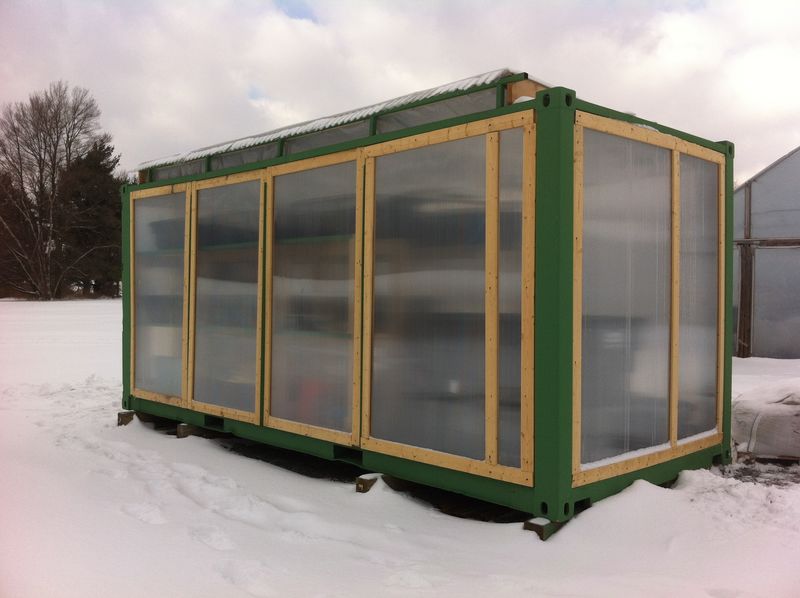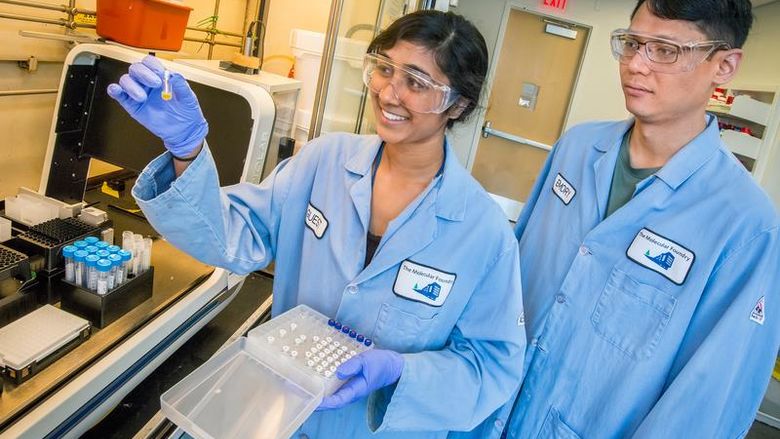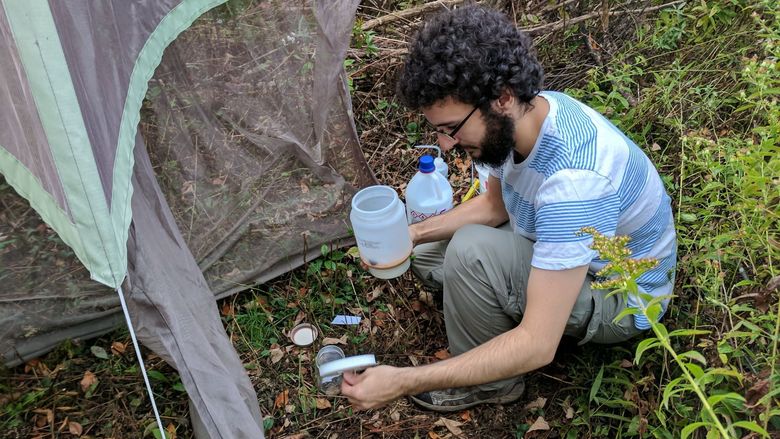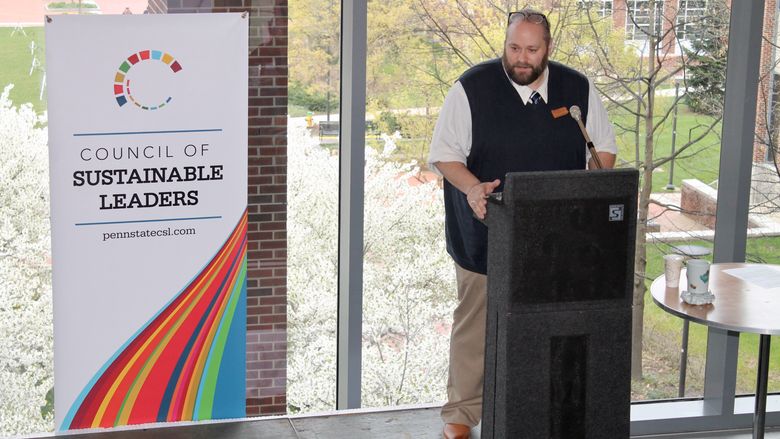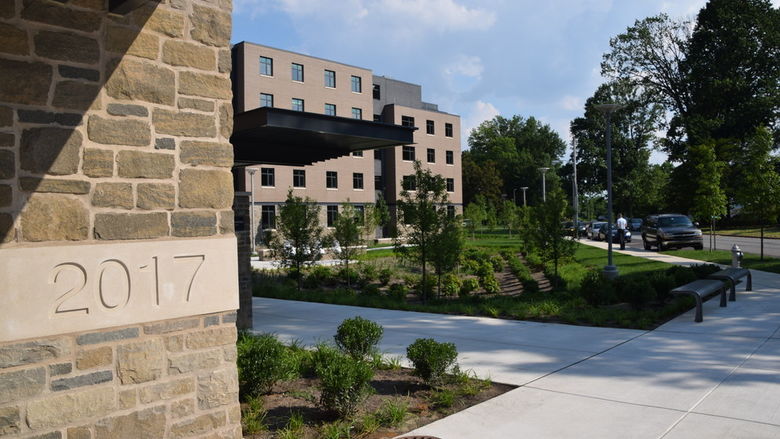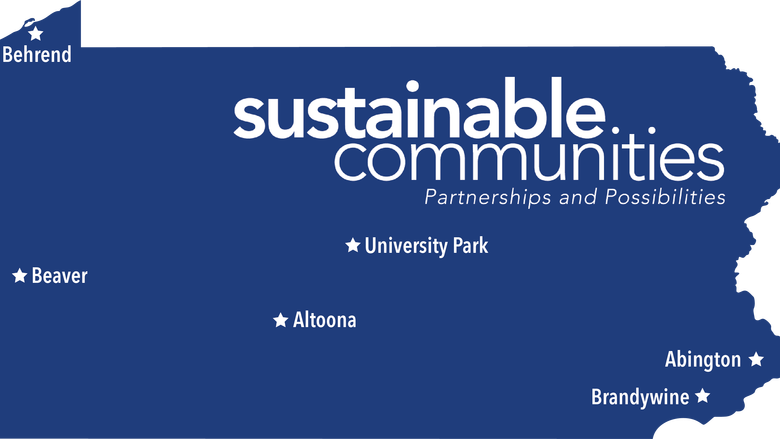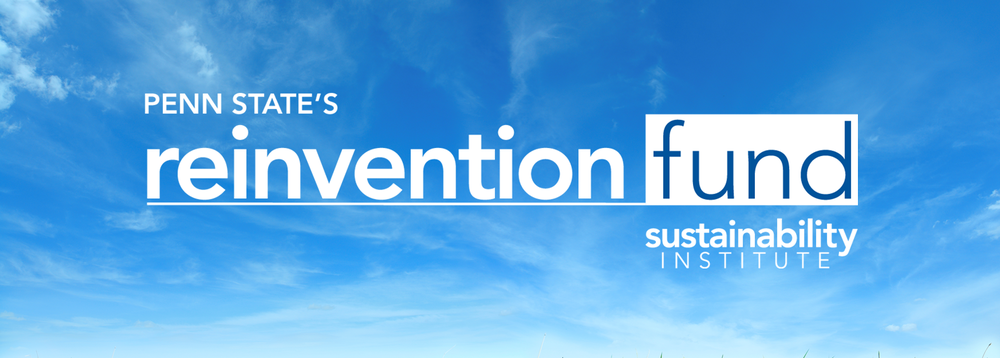
In October 2013, the Sustainability Institute announced its new internal grant program, The Reinvention Fund, intended to support collaborative projects by faculty, staff and students that will improve and expand sustainability efforts at Penn State. Of the more than $700,000 allocated for investment in these projects, $102,000 has been dedicated to support proposals received by student teams.
"The student proposals submitted to the Reinvention Fund are very inspiring," said David Riley, Reinvention Fund program manager. "While we have a lot of work to do as a University in the pursuit of sustainability, it is exciting to see the level of commitment that exists among students across our colleges and campuses."
“Internal sustainability grant programs of this magnitude are not common within Big Ten universities, especially for student teams."
-- Denice Wardrop, Sustainability Institute director
“Internal sustainability grant programs of this magnitude are not common within Big Ten universities, especially for student teams. We are incredibly excited to be able to offer this opportunity to our students, and very appreciative of the investment the University has made that allows us to do it,” said Denice Wardrop, director of the Sustainability Institute. “We need innovation by all, at all scales, across generations and capacities. The Reinvention Fund provides unique whitespace for this innovation to occur.”
Twenty-two proposals were received from interdisciplinary student teams, and 11 were selected to be funded. The funded proposals represent innovative ideas from four of Penn State's campuses -- Abington; Berks; Erie, The Behrend College; and University Park.
The Student Sustainability Advisory Council (SSAC), that provides consultation and advice to Penn State’s leadership on sustainability planning, programs and initiatives, formed a task force to review the proposals and recommend those that should be funded. Their recommendations were based on alignment with the Living Laboratory theme and the potential to make a broad impact at Penn State. The living laboratory refers to an immersive learning environment that utilizes the physical spaces, relationships, policies and processes of campuses and communities as hands-on learning opportunities.
"I was extremely impressed with the manner in which the SSAC leaders approached the review process. They worked very hard to be thoughtful, fair, and forward-thinking in what turned out to be some pretty tough decisions,” explained Riley.
“Many times, the projects that improve the efficiency of the University and make it more sustainable are not necessarily the most visible things.”
-- Evan McTague, SSAC co-chair
“Many times, the projects that improve the efficiency of the University and make it more sustainable are not necessarily the most visible things,” explained Evan McTague, SSAC co-chair. “Almost every proposed project will create a tangible output and I'm very excited to come back after graduation and see the byproducts of the funded projects.”
Funded projects include:
Organic Waste Logistics, Penn State Behrend – Bring in an organic waste-removal company to reduce food refuse in the Erie community by collecting it from local restaurants and turning it into organic fertilizer. Furthermore, local farms will have access to the fertilizer, ultimately improving the quality of the Lake Erie watershed.
Operation Dyson, Penn State Berks – Install Dyson electric hand dryers in the restrooms of the LEED-certified Gaige Building to demonstrate cost savings as compared to the current use of paper hand towels.
Pride Pantry, University Park – Create an on-campus food pantry for low-income students to overcome various restrictions to students at the State College Area Food Bank.
Increasing Local Foods at Penn State, University Park – Make the food system more sustainable by bringing more locally grown and produced food to the dining commons and restaurants at University Park.
The Living Filter, University Park – Create a sustainability report of Penn State’s Living Filter and raise awareness of the filter’s process through teaching and learning.
People, Plants, and Pollinators, University Park – Install a pollinator garden at the entrance of the Community Gardens with signage for visitors.
Passively Rotating Soilless Living Wall, University Park – Build a passively rotating, soilless living wall inside the Co-Space in State College by using aquaponics, a proven sustainable horticultural technology.
Crop Mobs, University Park – Bring students and farmers together in a cooperative effort as students spend a day working on a local, sustainable farm.
Remote Wind Power, University Park – Participate in the DOE’s Collegiate Wind Competition to design and build a portable wind energy generation system, including market research and financial analysis to support the viability of the product.
Abington’s Cloverly Gardens, Penn State Abington – Build an educational greenhouse and accompanying garden at Penn State Abington as a model for other campuses.
Affordable Greenhouse Venture Cameroon, University Park – Refine current affordable greenhouse technology in preparation for large-scale dissemination through a network of distribute micro-enterprises throughout West Africa.
“There were some great proposals that did not receive funding this year due to our budget," said Riley. The students who were not awarded funding this year will be advised on how to make their proposals stronger for consideration for future grant opportunities.
Faculty/staff proposals submitted for consideration to the Reinvention Fund are currently undergoing final review and are expected to be announced within the coming week.
For more information about the Reinvention Fund or sustainability at Penn State, please visit www.sustainability.psu.edu.
